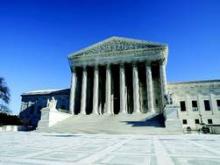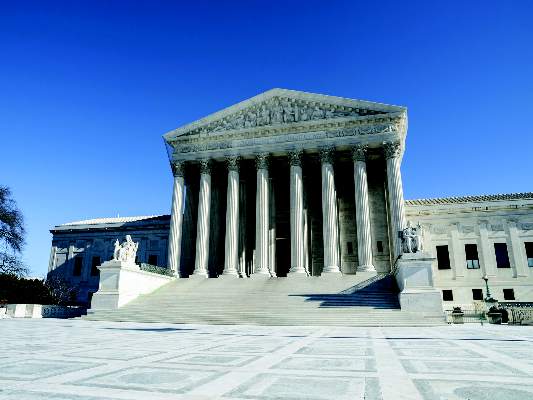User login
The Supreme Court has declined to hear a case challenging the Independent Payment Advisory Board.
This leaves in place a ruling from the 9th U.S. Circuit Court of appeals, which dismissed the lawsuit Coons v. Lew, on the grounds that the plaintiffs failed to show harm from the provision of the Affordable Care Act that created the IPAB.
The 15-member panel, created under the ACA to help control health care costs, is charged with identifying cuts to Medicare when the program’s spending exceeds gross domestic product plus 1%. Current slowing growth in Medicare spending had meant that the IPAB provision has not be triggered, and so far no members have been named to the panel.
Attorneys representing the plaintiff said they remain ready to refile their case if and when the IPAB is ever activated.
“This case is not dead; we’re simply in a holding pattern,” Christina Sandefur, senior attorney at the Goldwater Institute, said in a statement.
Congress also continues to look at the IPAB. In March, Rep. Phil Roe (R-Tenn.) reintroduced legislation to repeal the panel.
The Supreme Court has declined to hear a case challenging the Independent Payment Advisory Board.
This leaves in place a ruling from the 9th U.S. Circuit Court of appeals, which dismissed the lawsuit Coons v. Lew, on the grounds that the plaintiffs failed to show harm from the provision of the Affordable Care Act that created the IPAB.
The 15-member panel, created under the ACA to help control health care costs, is charged with identifying cuts to Medicare when the program’s spending exceeds gross domestic product plus 1%. Current slowing growth in Medicare spending had meant that the IPAB provision has not be triggered, and so far no members have been named to the panel.
Attorneys representing the plaintiff said they remain ready to refile their case if and when the IPAB is ever activated.
“This case is not dead; we’re simply in a holding pattern,” Christina Sandefur, senior attorney at the Goldwater Institute, said in a statement.
Congress also continues to look at the IPAB. In March, Rep. Phil Roe (R-Tenn.) reintroduced legislation to repeal the panel.
The Supreme Court has declined to hear a case challenging the Independent Payment Advisory Board.
This leaves in place a ruling from the 9th U.S. Circuit Court of appeals, which dismissed the lawsuit Coons v. Lew, on the grounds that the plaintiffs failed to show harm from the provision of the Affordable Care Act that created the IPAB.
The 15-member panel, created under the ACA to help control health care costs, is charged with identifying cuts to Medicare when the program’s spending exceeds gross domestic product plus 1%. Current slowing growth in Medicare spending had meant that the IPAB provision has not be triggered, and so far no members have been named to the panel.
Attorneys representing the plaintiff said they remain ready to refile their case if and when the IPAB is ever activated.
“This case is not dead; we’re simply in a holding pattern,” Christina Sandefur, senior attorney at the Goldwater Institute, said in a statement.
Congress also continues to look at the IPAB. In March, Rep. Phil Roe (R-Tenn.) reintroduced legislation to repeal the panel.

